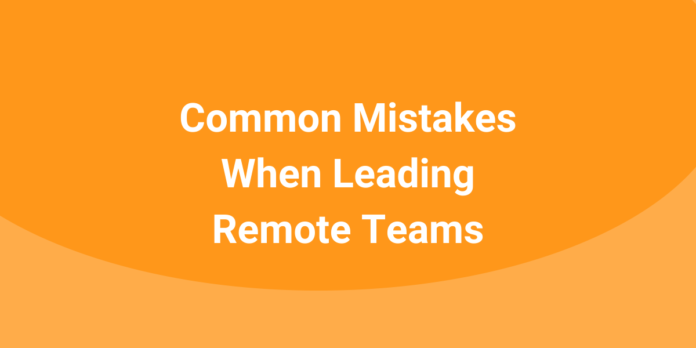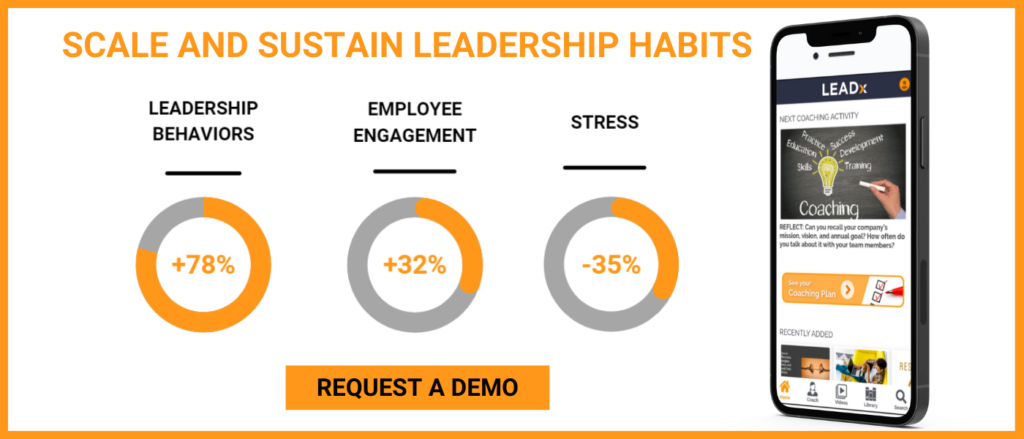
2020 has marked the start of a new era of leadership in many companies. While the hallmarks of good leadership—like empathy and emotional intelligence—transcend the boundaries of physical offices, leading well remotely has a different set of challenges than leading well in-person. Have newly remote leaders risen to the occasion? To answer this question, Emplify recently surveyed one thousand employees that have only been working remotely full-time since the start of the pandemic.
First, the good news. Half of survey respondents said that their manager’s level of trust in them has increased since working remotely, and 88 percent shared that their relationship with their manager has either stayed the same or improved. It seems that leaders are also learning to flex their empathy muscles, as 74 percent believe that their manager cares about their mental and emotional well-being.
But the survey also reveals that remote leaders need to level up in several critical areas. While fewer people are open to new job opportunities than this time in 2019, 65 percent would still consider switching jobs if an opportunity presented itself. To retain their best employees and differentiate in a remote-first work environment, remote leaders need to overcome three common mistakes and fast.
Mistake #1: Not providing enough constructive feedback.
When Emplify deployed its survey at the end of October, 67 percent reported that their manager hadn’t given them any constructive feedback in the last 30 days. Most of the time, leaders struggle to give constructive feedback for three reasons:
1. Lack of clarity – The manager doesn’t have a clear understanding of how the employee is performing
2. Lack of competence – The manager doesn’t know how to give feedback effectively
3. Lack of courage – The manager is afraid to give feedback for fear of hurting feelings or the employee responding negatively
Diagnosing the root cause of a failure to give feedback is the first step. If clarity is the issue, how can you get more insight into the individual employee’s work and performance? If it’s competence that’s holding you back, where can you find best practices for initiating a conversation around feedback? If courage is the issue, who can you talk to that can encourage and hold you accountable? At the end of the day, receiving constructive feedback is foundational to an employee’s growth. Someone can’t improve what they’re not aware of, so failing to provide this insight will do more harm than good in the long run.
Mistake #2: Failing to connect an employee’s day-to-day work to the organization’s mission.
We all want to know our work matters—and be part of something bigger than ourselves. But almost half of employees (45 percent) reported feeling more disconnected from their organization’s mission since going remote. People who find meaning in their work are more likely to perform at a high level and are more engaged. So knowing that people feel detached from the organization’s mission, consider implementing a cadence of communication that helps employees see that their work matters beyond meeting deadlines or ticking off boxes on their to-do lists. Additionally, when you celebrate “wins,” be intentional about sharing the “ripple effect” of the achievement. For example, let’s say you’re the leader of an event-planning agency (which, no doubt, has been impacted by the pandemic) and you’ve just pulled off a successful virtual industry conference. Instead of simply congratulating your employees on a job well done, talk about the number of attendees who learned something that will help them excel in a job they’re passionate about. If you’re a sales leader at a project management software company, estimate and celebrate the number of hours you’ll save the new customer your team just sold. Sometimes all it takes is a little perspective to help employees see that their work matters.
Mistake #3: Not prioritizing professional development for their people.
Emplify’s survey revealed that 47 percent of respondents have had fewer professional development opportunities while working remotely. Since lack of growth opportunities are among the top reasons people leave companies, managers should take this seriously. But before prescribing a course or program, start having conversations with people to set goals for their growth. If an individual contributor is eyeing a promotion to a manager, help her identify the skills she’ll need to be a people leader before setting her up with a manager development course. Another approach a manager could take is simply acting as the gatekeeper for company time and resources. You could require each of your direct reports to identify a growth area or set a goal, and then give them the autonomy to chart their own course. If you go this route, just make sure to build in some accountability into the process.
Leading well is difficult in the best of times, never mind during a pandemic. Leveling up your remote leadership skills will take patience and persistence. But as more and more organizations begin hiring remote workers outside of their locality, excellent remote managers will be rewarded with engaged and high-performing teams.







